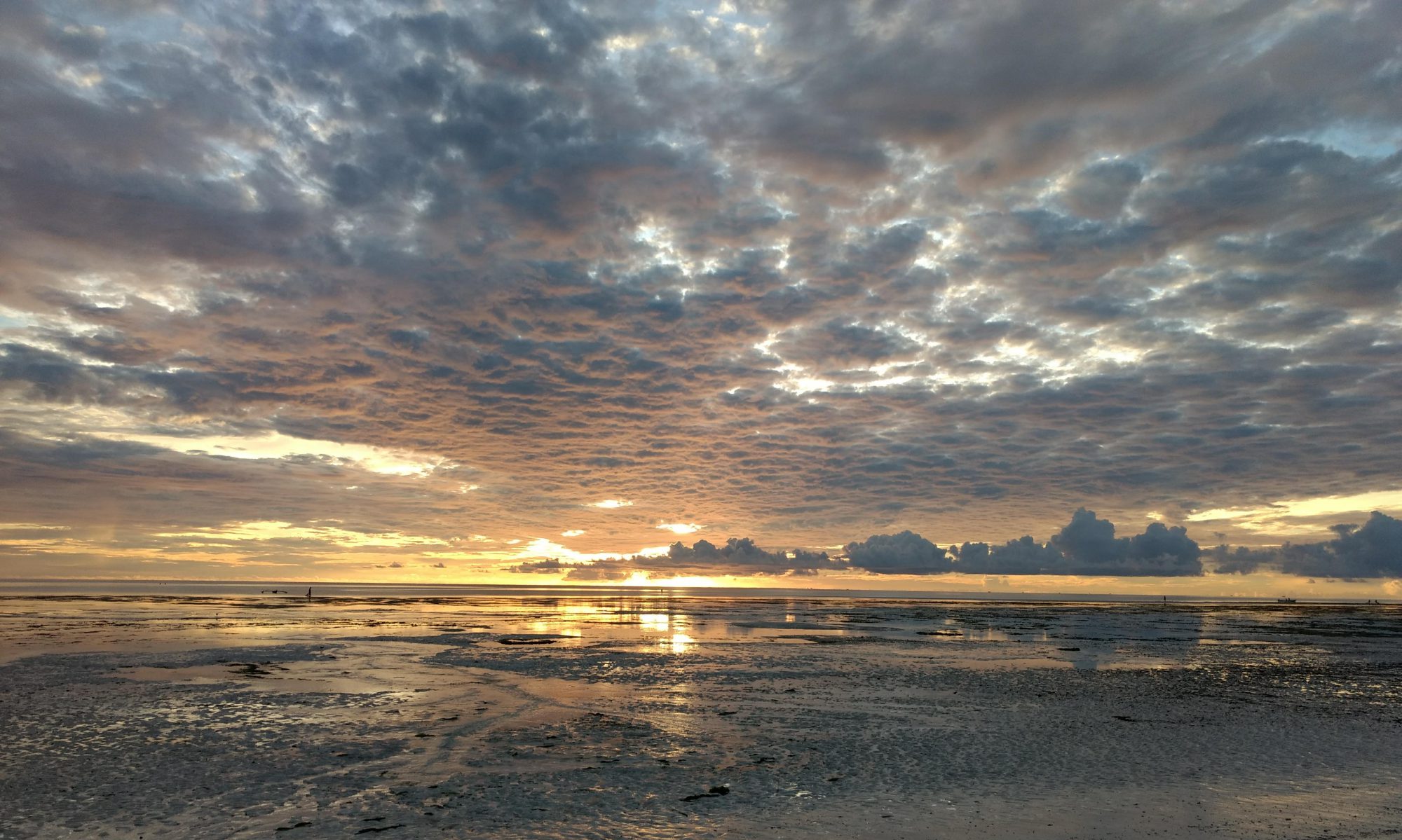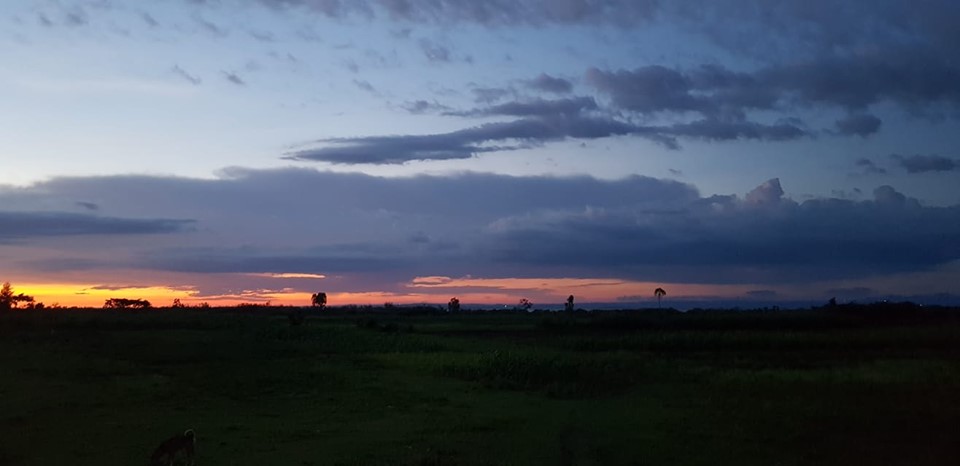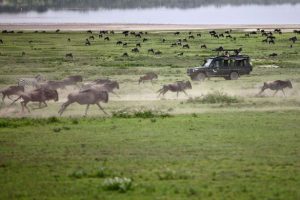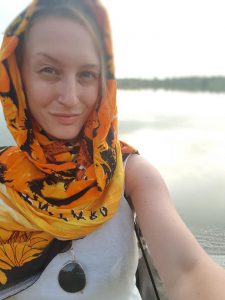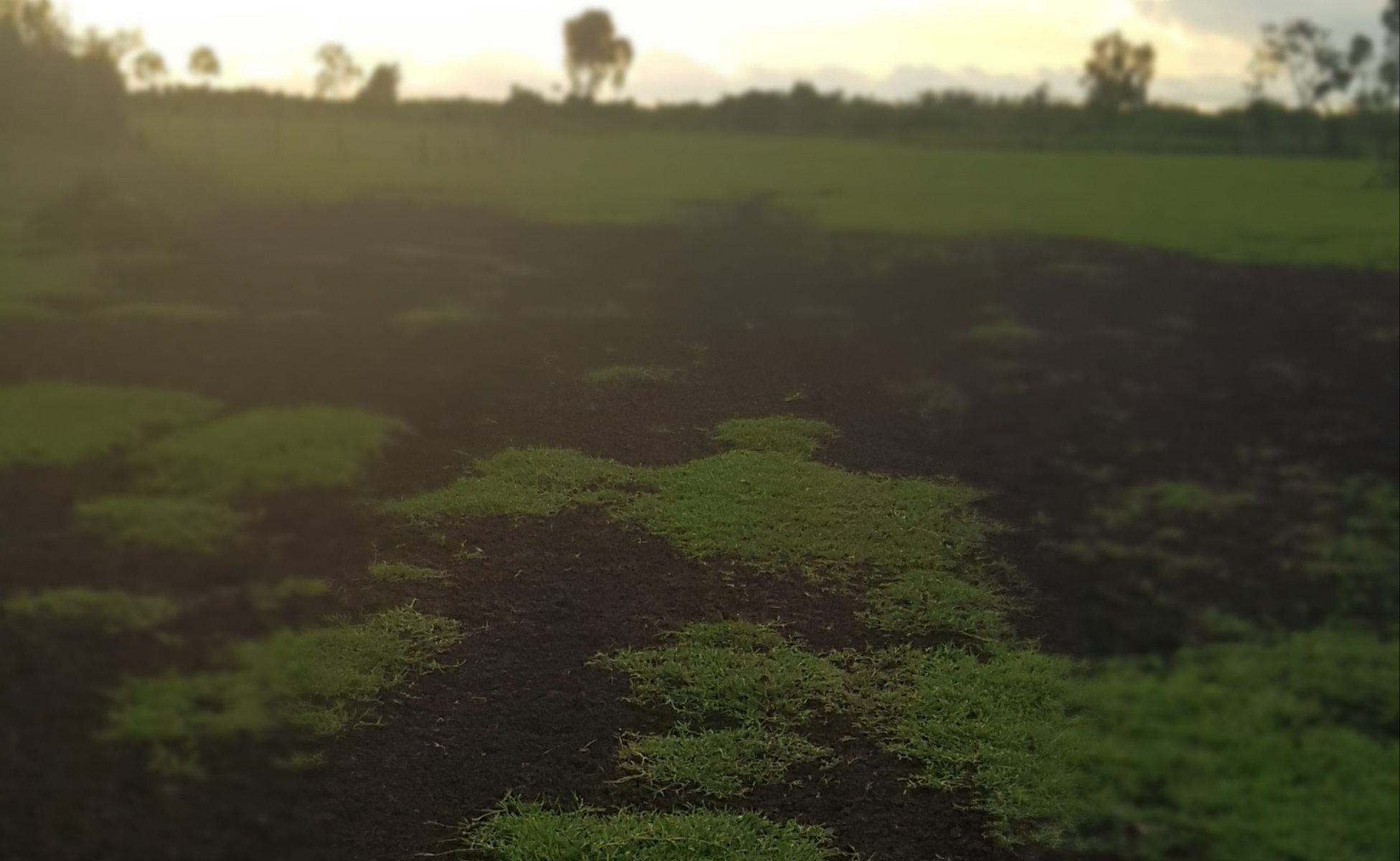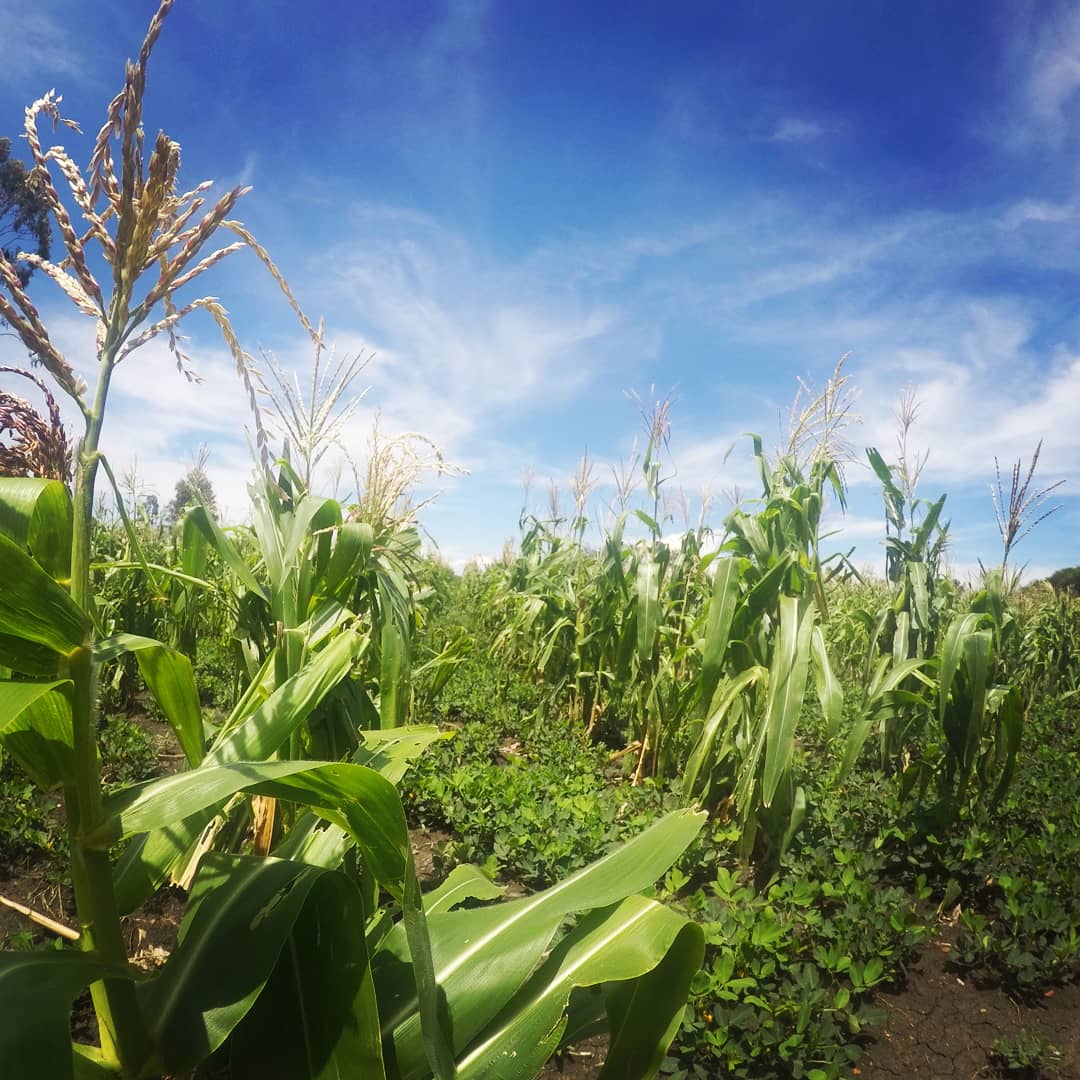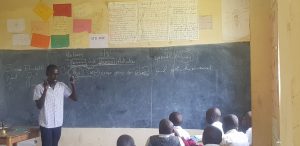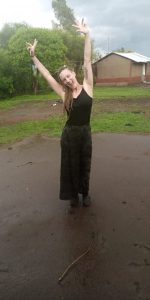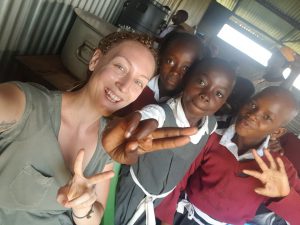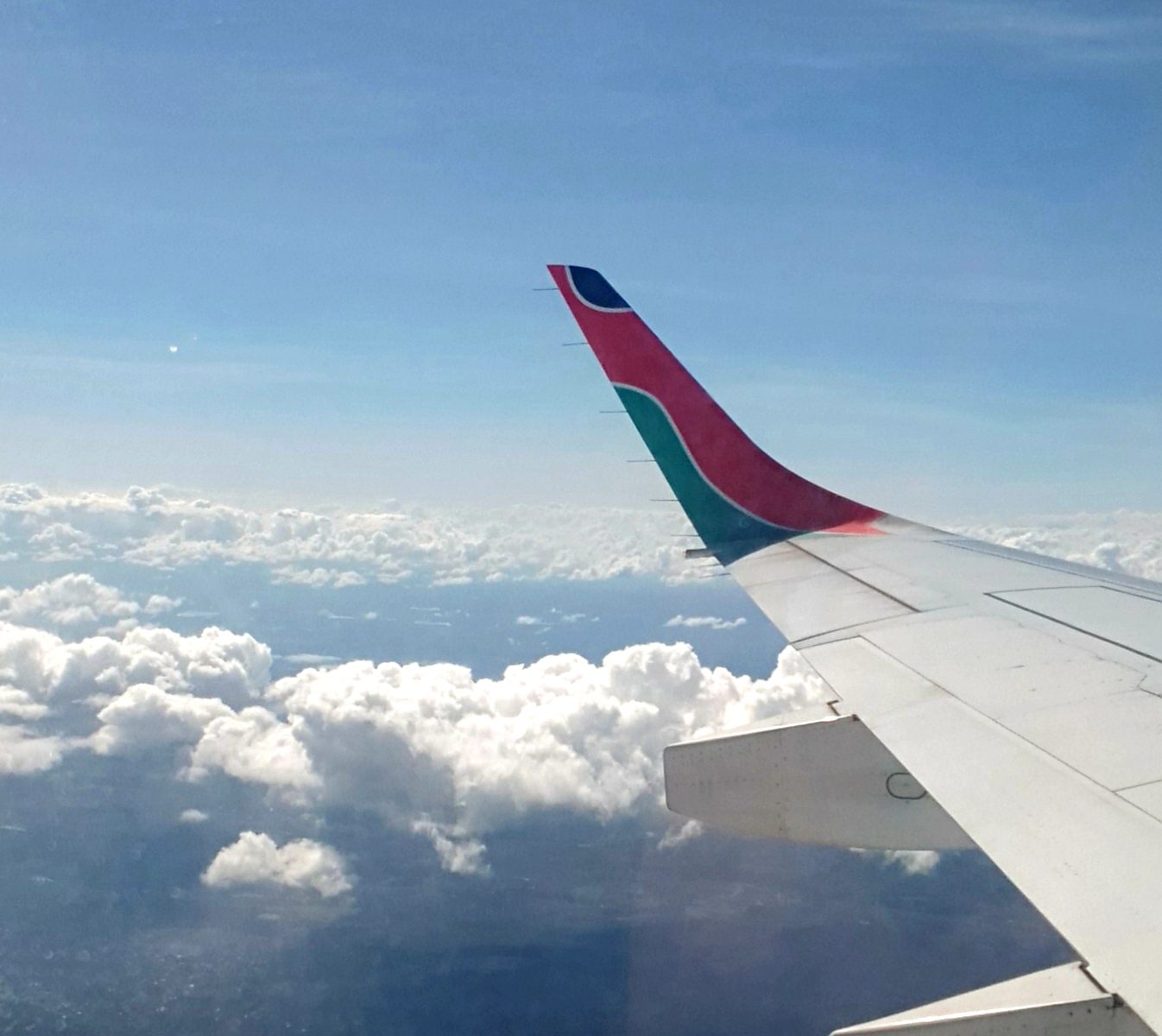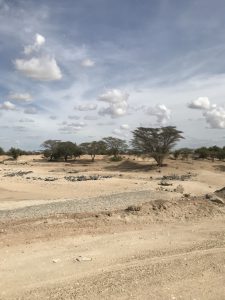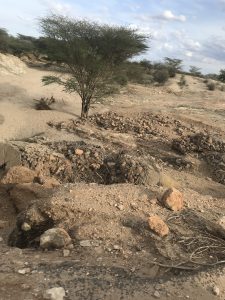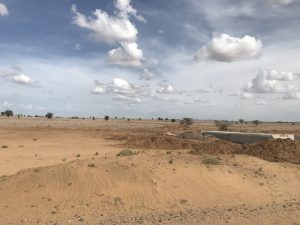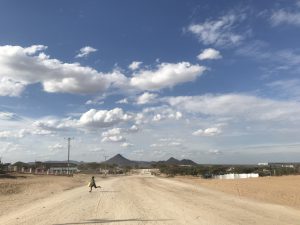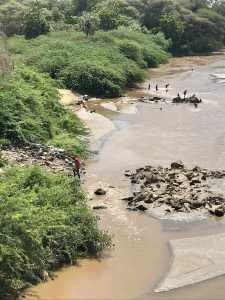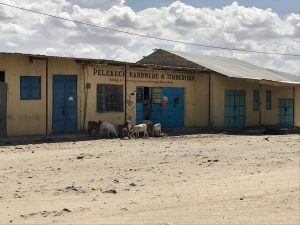Hi everyone. I’m on my second last week here in Western Kenya in Wagwe. The days for me are mostly calm and easy. However, I have during this time of two weeks experienced: a music festival in a high school (a singing and dancing competition from various schools); Madaraka Day (Kenya’s 56th year of self-rule); and Ramadan.
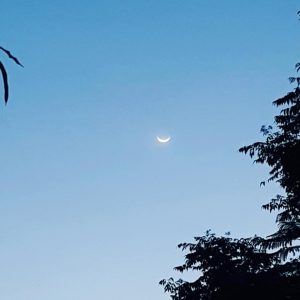
It was a big celebration in Narok Country during Madaraka Day, located in the South-West Kenya, the land of the Maasai. Every year Kenya celebrates the day from a different county with music and dance, speeches and other events. This time, because it took place in Narok county, people had the chance to enter the Serengeti wildlife reserve for free.
Underneath, is a picture of the Maasai. Not only are they known for wearing red and to be one of the world’s last great warrior cultures – but they are also incredible good a jumping!
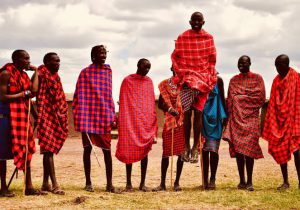
I can tell you how most of my regular days looks like here: I wake up around 07:00-08:00 by the rooster. You wake up with less stress and tiredness than waking up from an alarm-sounding phone (what I am used to at home). Then, I go and boil some eggs or make myself an omelette. Every morning I need to take the malaria medicine (a red pill), which is best taken with something fat – like eggs. I make some tee and if I sync my breakfast with my host family, I will share it with George (my kind and hospital contact person). Then, either I will go to the Mama Norah school before lunch to help the chefs in the kitchen to serve the pupils or stay home and write and read. After lunch if I’m in school, I might sit in the library and read, or I attend the classes. Around 15:00 – they have something called “game time”. They bring out a basketball and some footballs to play with for about an hour. For the record, the footballs are very expensive here. I reckoned this when I bought one for the school and one for a boy. In Kenyan schilling it estimates around 1500-2000 schilling, which is about 200 Swedish crowns ($20).
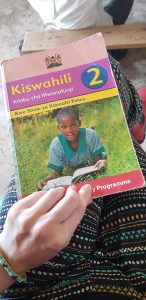
On the way to and home from school there is a 10-minute walk that I usually go with one of the neighbours, one is a teacher at the school. I usually meet children on the way that wants to high-five me and others that I greet on the way. Rocky, the dog from the house I am staying in, sometimes follow me too.
Yesterday (6 June), I had an interview with one of the teachers. It was really giving. I am performing the fieldwork through participant observation, where I go on about the everyday life and attend local events and meet people in the community. It seems natural to have an interview after 1-1,5 week after some observations and time to think. I write down some structured questions as a guide of what I want to discuss or ask about, but usually the conversation leads to greater insights and discussions than what I beforehand had planned. So, there is more of an ongoing storytelling from the informant and random questions I come up with when being in the moment – it feels more natural and I get more inspired “in the zone” than writing out questions beforehand.
The community in Wagwe consist of many different types of religions. Mostly, the community consist of Roho, a branch from Christianity. But there is also Hindus, Muslims and other branches of Christianity, like The Seven Day Adventist church that live together side by side in the community. I have attended the Roho Church (mostly) every Saturday as the host family are going there. They wear a white or red coat/long dresses, and women wear a scarf around their head. Someone preaches to the crowd and then suddenly, a person starts singing, and then more people are singing. First, you can hear one drum beating in fast paste that shortly accompanies by 2-3 other drums – creating a dance beat. Someone also joins with maracas, that makes one more inspired to stand up and dance. And that is what’s happening. As soon as the first drum sounds – the smallest kids start to bounce up and down and run towards the centre where the people playing the drums and maracas and the person singing stand. The sound is so loud, it feels like your heart vibrates to the sounds of it (it’s hard for me to sit completely still). Then more and more people from all ages joins the dancing in the middle.
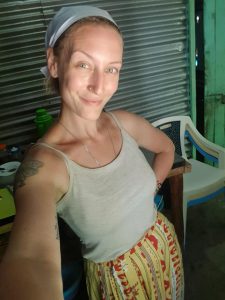
I seem to have written a lot this time, I hope you enjoyed the reading of some of the everyday life of mine in Wagwe. I must end this by saying that tomorrow, I will be going early to Serengeti, a wildlife reserve in Maasai Mara. It will the first trip for me “outside the field work” – I look very much forward to it. Apparently, there is low season now, because the wildebeests are over the border in Tanzania. They usually arrive to Kenya in July and departs in November. It is said that during a period of three days, more than 1 million (!) wildebeests migrates over the river to Kenya – which is why many people come to visit the reserve at the Great Rift Park. However, I’ve been told that because of climate change, the herd will arrive earlier than usual to Kenya – which is why I might be able to view it. I will write a post after this trip, and of course put up some picture for you to see!
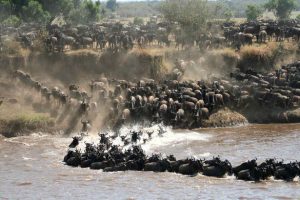
I also want to thank those that contributed to the foundrasing about two weeks ago to the school. I have been talking with the teachers and people in the CBO who got very happy about this – and so together we will see how we can get the best use of it – I will not forget to update about this.
Until next time – take care! /Isabelle
